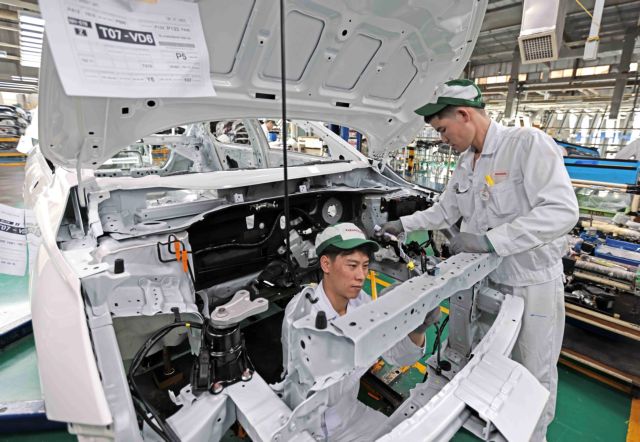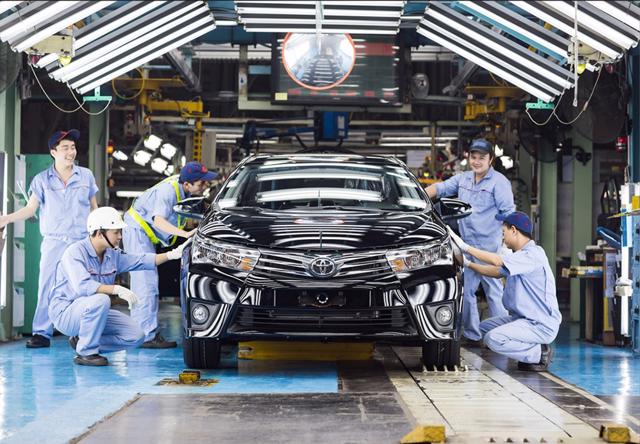 Economy
Economy

 |
| Workers at a car assembly workshop of Toyota Vietnam in Vĩnh Phúc Province. — Photo vneconomy.vn |
HÀ NỘI — In 2024, Việt Nam's domestic car production is estimated at 388,500 units, marking a 27 per cent increase compared to 2023, according to the General Statistics Office.
About 134,500 vehicles were manufactured during the three months of reduced registration fees, lasting from September to November. This figure accounts for about one-third of the year’s total production.
However, in December, domestic car production in Việt Nam was estimated at 47,000 units, a significant drop from the 52,400 units produced at domestic factories in the previous month. This decline aligns with the expiration of the 50 per cent registration fees reduction for locally manufactured and assembled cars. Therefore, manufacturers have proactively scaled back production to avoid excess inventory heading into 2025.
By the end of November 2024, sales of domestically assembled vehicles reached 159,868 units, according to the Việt Nam Automobile Manufacturers’ Association (VAMA).
It represents a modest 1.6 per cent increase year-on-year and accounts for 59.5 per cent of total car sales in the market.
Despite the moderate growth, the results are noteworthy considering the 2024 registration fee reduction policy lasted only three months, only half the duration of a similar policy in 2023.
Domestic production and sales are expected to grow moving forward, with companies continuing to expand their manufacturing presence in Việt Nam.
These include new Chinese brands entering Việt Nam, including Omoda and Jaecoo of Chery, Geely and Lynk & Co, with factories built in Thái Bình.
Meanwhile, the European brand Skoda began trial runs of its new car assembly and manufacturing plant in Quảng Ninh at the end of 2024. This facility will go into commercial operation in early 2025, with a capacity of 120,000 units annually.
In December, Vietnamese automaker VinFast also launched the construction of an electric car factory in Hà Tĩnh. The new facility will focus on producing the VF 3 and VF 5 models, which are VinFast's best-selling vehicles.
Having domestic manufacturing facilities will secure supply and allow the sector to benefit from state support policies, ultimately boosting sales and helping to turn Việt Nam into an emerging regional hub. — VNS